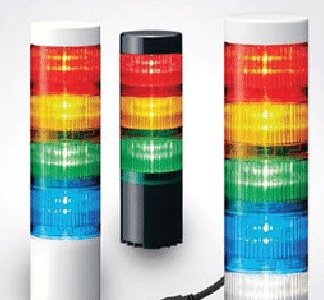Description
Eliott is a maintenance operator. In the industry, he is one of the most versatile players. He must adapt to all techniques in order to maintain and repair equipment and machines.
Eliott’s objective is to avoid breakdowns and production interruptions through preventive maintenance.
A multi-skilled position with multiple missions.
– Troubleshooting
– Analyze and organize to anticipate breakdowns
– Improve the production tool, maintenance tools and procedures
– Continuously train / be trained
As the slightest technical failure can lead to high additional costs, he/she regularly controls, monitors and maintains the equipment.
Job Description
Role:
The maintenance operator is responsible for ensuring proper maintenance of the company’s equipment and machinery, in order to ensure their optimal operation and extend their lifespan.
Responsibilities:
- Perform preventive and corrective maintenance work on the company’s equipment and machinery
- Diagnose and repair equipment and machinery breakdowns -Use maintenance tools and equipment safely
- Follow safety instructions and company procedures
- Keep maintenance logs and equipment technical sheets up to date
- Participate in continuous improvement of maintenance processes by suggesting ideas and participating in improvement projects
Skills:
- Practical experience in equipment and machinery maintenance
- Knowledge of maintenance equipment and tools
- Ability to use maintenance tools and equipment safely
- Good ability to work in a team and communicate with other members of the company
- Ability to diagnose and repair equipment and machinery
- Initiative and proposal for improvement
- Knowledge of safety rules and company procedures
The maintenance operator can contribute to the implementation of innovative solutions to improve overall industrial performance, for example:
- Predictive maintenance: the use of technologies such as real-time monitoring and data analysis to anticipate potential breakdowns and perform repairs before a breakdown occurs.
- Maintenance automation: the use of robots and other automated technologies to perform maintenance tasks, such as cleaning and lubrication, which can reduce downtime and maintenance costs.
- Condition monitoring: the use of sensors and monitoring technologies to monitor machine operating conditions in real-time and detect potential problems.
- Performance-based maintenance: the use of performance data to determine necessary maintenance based on actual machine usage, rather than relying on fixed maintenance schedules.
- Machine networking: the use of Internet of Things (IoT) technologies to connect machines together and enable real-time monitoring and data analysis to improve availability.
These innovative solutions can significantly improve the availability of production machinery, which can result in increased productivity and profitability for the company.
Working conditions:
- Work in a workshop or in the field -Variable working hours depending on maintenance needs
- Wearing of mandatory personal protective equipment (PPE)
This job description may vary depending on the specific needs of the company and the work environment.
What job training programs can be offered to a maintenance operator?
There are several job training programs that you can consider for a maintenance operator, depending on their skills and your company’s objectives. Here are some suggestions:
- On-the-job training with an experienced maintenance technician
- Training programs offered by equipment manufacturers or suppliers
- Trade schools or vocational schools that offer courses in industrial maintenance
- Online training courses or certification programs in specific maintenance technologies or processes
- Apprenticeship programs that combine classroom instruction with hands-on experience under the guidance of an experienced mentor
- Equipment-specific training: If your company uses particular equipment, you can provide in-depth training on the use and maintenance of that equipment to the maintenance operator.
- Preventive maintenance training: You can provide training in preventive maintenance to help the operator understand how to monitor equipment and detect problems before they become major breakdowns.
- Fault analysis training: If the maintenance operator is called upon to troubleshoot problems, training in fault analysis can be useful in helping them identify underlying causes of problems and find effective solutions.
- Electromechanical training: If the maintenance operator will be working with electromechanical equipment, training in electromechanics may be necessary to understand basic principles of electricity and mechanics, as well as learning to use appropriate tools and equipment.
- Safety training: Maintenance operators often work with hazardous equipment, so it is essential to provide safety training to help prevent accidents.
These training programs can be provided in-house by your company or by external training organizations. It is important to identify the training needs of your maintenance operator and find the appropriate resources to provide them with comprehensive and effective training.
Interview questions
Human Resources Director: Hello Eliott, welcome to this job interview for the maintenance operator position. Could you tell us about your professional experience as a maintenance operator?
Eliott: Hello, thank you for inviting me to this interview. I worked as a maintenance operator for five years in a production factory. My main role was to maintain and repair production machines to ensure maximum availability. I also worked closely with the production team to diagnose problems and solve them quickly.
Human Resources Director: Very well, thank you. Could you give us a concrete example of a situation where you solved a technical problem on a production machine?
Eliott: Sure. A few months ago, a production machine suddenly stopped. After a thorough inspection, I determined that the cause was a malfunction of the lubrication system. I quickly ordered the necessary parts, then I made the repairs and performed tests to ensure that everything was working properly. The machine was restarted in less than 12 hours, which helped minimize downtime and maintenance costs.
Human Resources Director: That’s excellent. Could you tell us how you work closely with the production team to improve industrial performance?
Eliott: Absolutely. I work closely with the production team to monitor machine performance data, anticipate potential breakdowns, and plan necessary repairs. We also develop shared action plans to achieve common goals in terms of machine availability and performance improvement. This collaboration is crucial to ensure that machines operate properly and production goals are met.
Human Resources Director: Thank you very much for your answers, Eliott. This interview has been very useful in understanding your experience and approach as a maintenance operator. We will keep you informed of our decision in the coming days.





